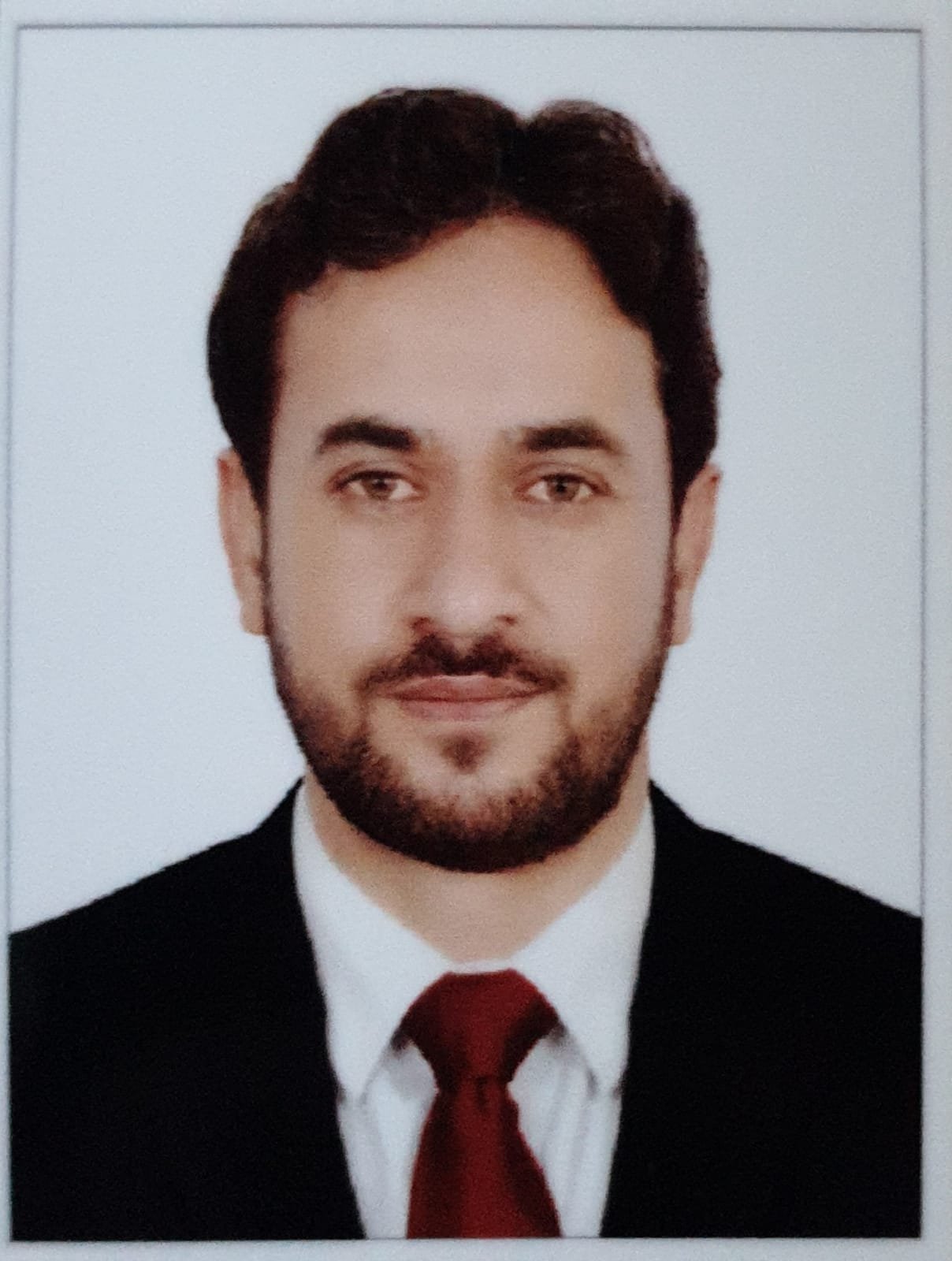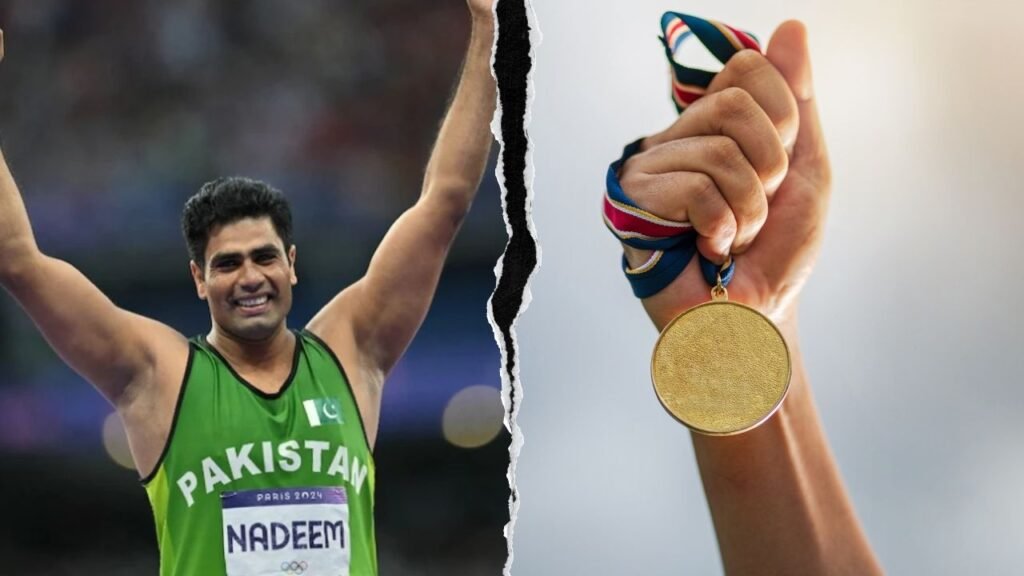The Fall of a Champion
You can take my life, but you can’t kill my dream.” These were the final words of Arshad Nadeem, as he stood before the gallows in 2050. Once a symbol of hope and triumph for the nation, he now faced the ultimate betrayal.
The same country that had celebrated his Olympic victory and embraced his humanitarian work was watching in silence as its hero was sentenced to death. But who was Arshad Nadeem? And how did he go from being a beloved champion to a man condemned by the powerful?
It was not so long ago, a child was born in a small, forgotten village of Punjab. His family struggled to survive, with barely enough to make it through each day. That boy’s name was Arshad Nadeem.
The dusty roads of his village, the calloused hands of his parents, and the weight of poverty shaped him into a tough young man. He was fond of the javelin, fascinated by the power and grace of the throw—but even his dreams were hampered by the harshness of life.
“Father, I need a javelin,” Arshad would whisper every night. But they had no money, and the officials who could have helped turned their backs on him. His father, with trembling hands, fashioned a javelin out of wood.
“It’s not much, son,” his father said, his voice thick with regret, “but it’s all I can give you.”
Arshad clenched the makeshift javelin in his hands. His eyes burned, but not from tears. “One day, it’ll be enough.”
But fate was cruel. Before Arshad could make strides in his sport, his mother fell gravely ill. The diagnosis was cancer. They searched for treatment and begged for help, but the money simply wasn’t there. His mother, the anchor of his world, was slipping away.
“Amma… I’ll make it someday, I promise,” Arshad whispered to her one night, holding her frail hand.
With a weak smile, she replied, “I know you will, my son. But don’t let this world break you.”
Her death shattered Arshad, but in his pain, he found strength. His grief became his fuel. He resumed training, determined not just to throw the javelin but to hurl it with every ounce of his anger, loss, and hope. His eyes were set on one thing: the Olympics.
The Nation’s Hope
In 2024, the nation held its breath as Arshad stepped onto the Olympic field. This was more than just a competition—it was a moment for him to claim not only victory but the respect he had been denied.
With fierce determination, Arshad threw the javelin, breaking the Olympic record. The entire country erupted into celebration, chanting his name in the streets. The officials who had ignored him now rushed to shower him with rewards. Even the army honored him with a ceremony. But Arshad’s thoughts were on the people, those who had suffered like his mother.
“Winning is not enough,” he whispered to himself. “I need to do more.”
A Dream Beyond Sports
After becoming a world champion, Arshad set his sights on something greater—a cancer hospital for the poor. People laughed at him, calling him mad.
“A javelin thrower trying to build a hospital? He’s lost his mind,” they said.
But Arshad refused to listen. Year after year, he built the hospital brick by brick. When it finally opened, it provided free treatment to the forgotten, just like his mother had been.
But his mission didn’t end there. He entered politics, wanting to fight for the rights of the poor. For 22 long years, he struggled against the corrupt elite until finally, in 2046, Arshad became the Prime Minister.

A Nation Betrayed
His reforms were revolutionary, aimed at uplifting the poor and breaking the hold of the wealthy and powerful. But the establishment saw him as a threat. Generals, landlords, and traditional politicians conspired against him. They fabricated charges, accusing him of corruption and treason. Despite the protests of the people, Arshad was arrested, and the judiciary—under the control of his enemies—sentenced him to death.
In prison, Arshad remained calm. His fight was never for power, but for justice. As he waited for the day of his execution, he knew that his sacrifice would not be in vain.

The Final Throw
On the day of his execution, the entire nation stood still. Arshad Nadeem—the boy from a small village who had once made his country proud—was about to be hanged. But even in his final moments, he did not falter.
“You can take my life, but you can’t kill my dream,” he said, turning to his executioners with steady eyes. “My fight ends here, but the people will continue.”
As the noose tightened around his neck, a wave of sorrow swept through the nation. Arshad was gone, but his legacy—his fight for justice—lived on in the hearts of millions.
The powerful had won the battle, but Arshad Nadeem’s spirit had become immortal. And in the quiet grief of the nation, his name was whispered, not in sadness, but in pride. He was more than a champion. He was a martyr for justice.
The final throw of his life was not made in a stadium but on the gallows, yet it struck deeper than any weapon ever could.
Arshad Nadeem’s story is a profound reflection of the sacrifices made by those who dare to challenge the status quo. From a humble boy with nothing but a wooden javelin to a world champion, and finally a leader of the oppressed, his journey symbolizes the relentless spirit of perseverance. His life was not just about winning medals or holding office; it was about standing up for those who had been silenced and forgotten. Ultimately, his legacy was not in the distance he threw, but in the hearts he touched.
Though he was betrayed by the very system he sought to change, Arshad’s final act of defiance—his unwavering commitment to justice—ensures that his story will live on. His life reminds us that true champions are not just made on the field but in the courage to fight for what is right, even in the face of death.

Muhammad Irfan Khan is a seasoned educationist with a wealth of international experience. He is recognized for his expertise in global current affairs, particularly Indo-Pak relations, and is also a passionate sports analyst. His diverse background allows him to offer deep insights into the intersections of education, geopolitics, and sports, making his analyses both well-rounded and impactful. With a strong grasp of both academic and real-world issues, he continues to contribute meaningfully to discussions on international affairs and sporting events

